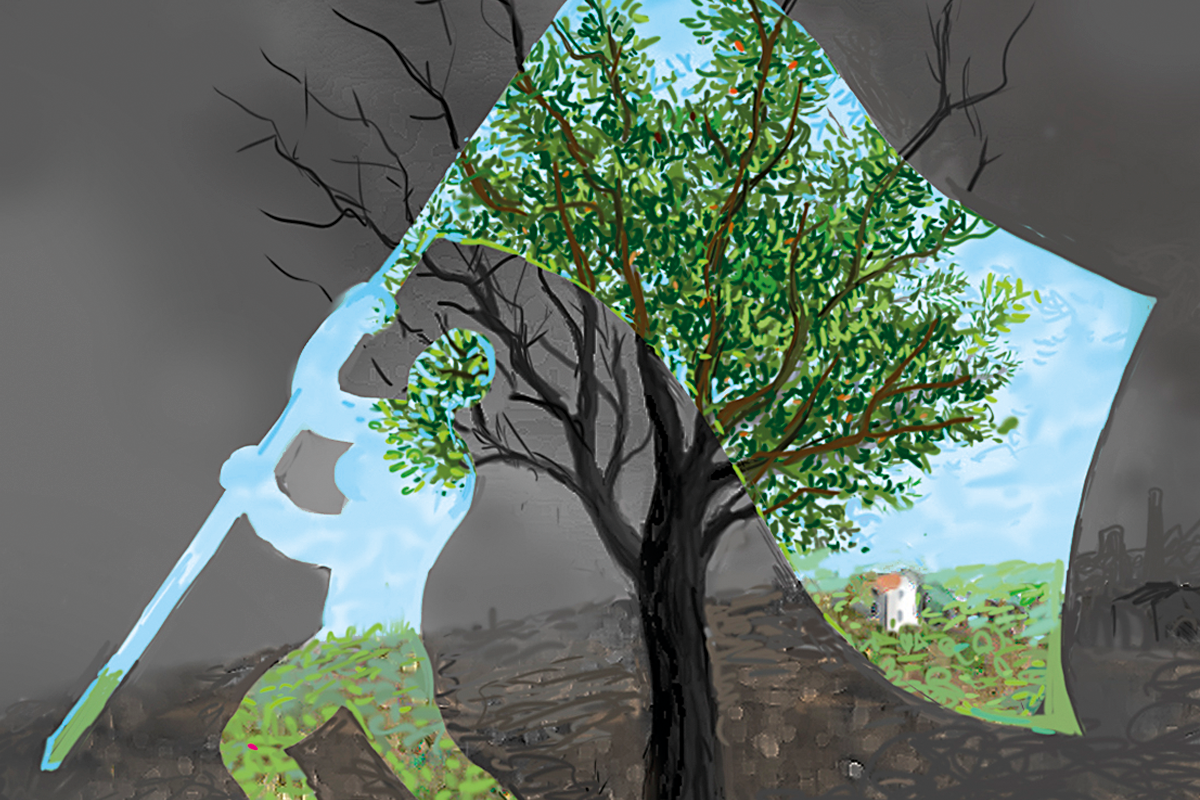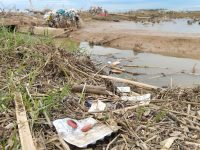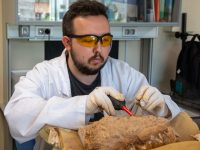
In 1901, at the age of nineteen, Andreas Madsen left his native Denmark for Argentina. In Buenos Aires, he joined Francisco Pascasio Moreno’s (famously known as Perito Moreno) Argentine Boundary Commission and found himself, a sailor, setting milestones on the border between Chile and Argentina in the Patagonian Andes. He stayed. He was one of the first settlers in the area, along with a sparse and motley crew of other Europeans and hyperborean Americans who learned to coexist with the equally sparse Tehuelche Indians of the area. The life of these people was an epic, all alone in the icy wilderness. Similar stories had already been told in Canada and the United States, like those involving Daniel Boone and David Crockett. They were truly dauntless pioneers.
In the old days, the French called infantrymen who marched in front of armies pionniers. The English dendrologist and author John Evelyn, in Sylva or a discourse of forest-trees (1664), already used the term pioneer in the modern sense, meaning leader. The colonisation of the North and South American Far West was the work of pioneers, a task later reflected in countless more or less passable films. Their heroic nature was conveniently exalted, but the remarkable environmental inscription of these people, certainly forced by necessity, but also a consequence of the Calvinist imaginary they carried from their countries of origin, was not always sufficiently noted. The abuses and slaughter of bison and Andean deer came later.
Pioneers conquer, do not destroy, wrote Andreas Madsen, lamenting the annihilation of wildlife and abusive logging. Indeed, after the pioneers came the profiteers. Centuries before, the same thing had happened in the Old World. Abundance relaxes manners and pushes the marginalised to emigrate in order to rejuvenate the system in still virgin lands. But Earth has run out of colonisable outlands. Perhaps that is why we have looked outside the planet and, as early as the 1960s, we began to send the Pioneer probes into space. The Perseverance astromobile, which has been roaming the deserts of Mars since February 2021, is their heir. Some are in favour of colonising the red planet, a far from simple task, and I do not know if a worthwhile undertaking at all: after the pioneers, will we send profiteers and continue to reproduce our brilliant track record of crazy and inefficient pillagers?
In any case, these hypothetical new frontiers do not spare us from housekeeping. In 2007, Thomas L. Friedman argued in the pages of The New York Times for a Green New Deal. It was a timely idea, an apt paraphrase of the socio-economic New Deal advocated in 1933 by President Franklin D. Roosevelt to address the consequences of the Great Depression caused by the 1929 crash. Yes, in the face of rampant climate change, we need to do something.
«Earth has run out of colonisable outlands. Perhaps that is why we have looked outside the planet»
The European Commission has launched the European Green Deal. It aims to achieve European climate neutrality by 2050. It may not be as ambitious a goal as colonising Mars, but it is certainly more immediately desirable. While the still dreamlike pioneers of the Martian deserts begin to prepare, we earthlings would have to restore climate conditions to reach the 22nd century without excessive surprises. We would have to become the pioneers of this new climate status quo. This is not easy to achieve, but it is indeed possible and certainly very desirable. It would be both historic and very useful.
On the fence of his Fitz Roy estancia, the pioneer Andreas Madsen put up a sign saying: «Think highly, feel deeply, speak clearly». I’m in.





